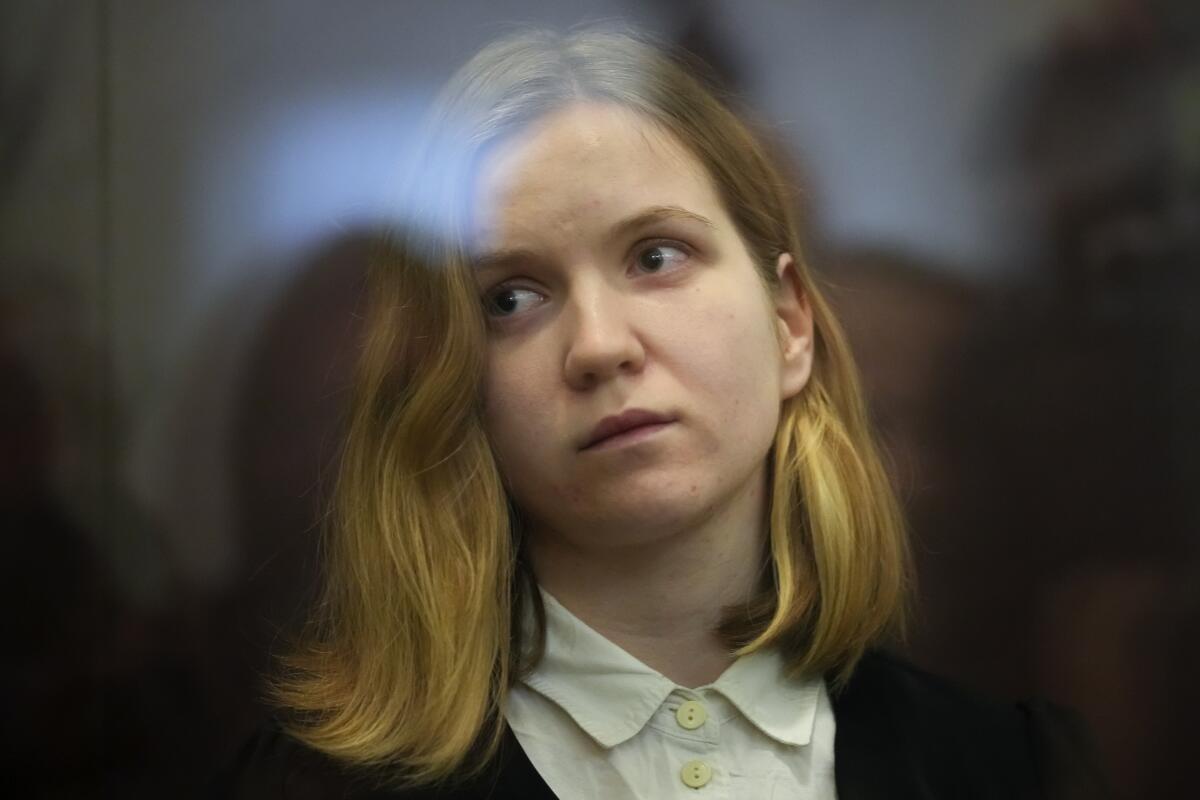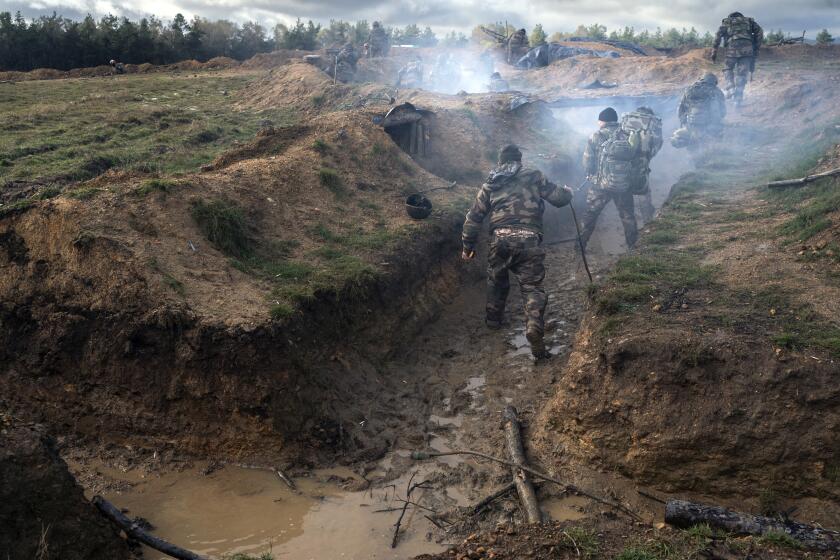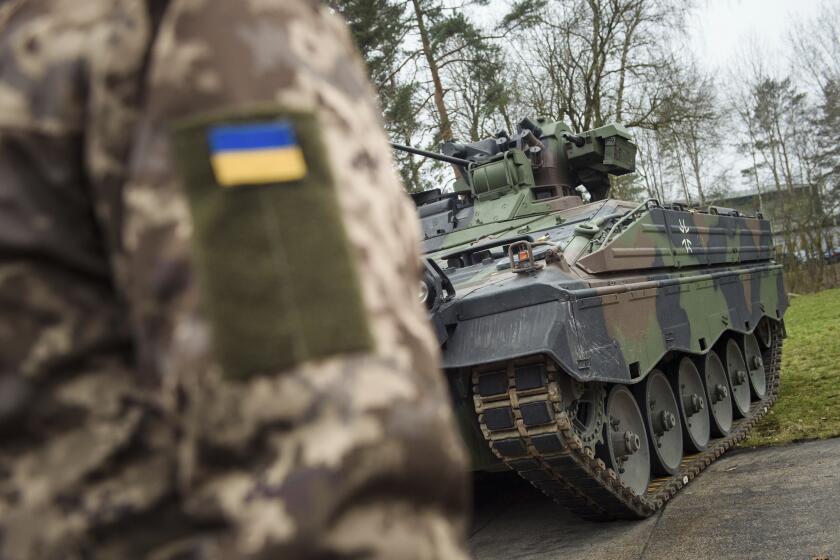Woman goes on trial in bombing that killed prominent Russian military blogger

- Share via
ST. PETERSBURG, Russia — A woman went on trial Wednesday in the bombing at a St. Petersburg cafe that killed a prominent Russian military blogger after he was given a bust of himself that later exploded.
Darya Trepova, 26, is charged with carrying out a terrorist attack, illegal trafficking of explosive devices and forging documents in the April 2 blast at the cafe in which Vladlen Tatarsky was killed and 52 others were injured.
She was arrested shortly after the bombing and faces up to 30 years in prison if convicted, according to Russian news reports.
Tatarsky, 40, was an ardent supporter of the Kremlin’s war in Ukraine and filed regular reports on the fighting from the front lines.
Trepova was seen on video presenting Tatarsky with the bust moments before the blast at the riverside cafe in the historic heart of Russia’s second-largest city, where he was leading a discussion.
Russian media have reported that Trepova told investigators she was asked to deliver the statuette but didn’t know what was inside it.
Combat training programs provided by Ukraine’s allies are hitting major milestones even as global attention shifts to the war in the Middle East.
Trepova’s acquaintance Dmitry Kasintsev, 27, is standing trial with her, although he is under house arrest. She had stayed in his apartment after the blast, and the authorities have charged him with concealment of a grave crime.
Russian authorities have blamed Ukrainian intelligence agencies for orchestrating the bombing. Authorities in Kyiv have not directly responded to the accusation, but an adviser to Ukrainian President Volodymyr Zelensky has described the bombing as part of Russia’s internal turmoil.
Russia’s Federal Security Service, the FSB, alleged that a Ukrainian citizen it identified as Yuriy Denysov had gathered information about Tatarsky and supplied Trepova with explosives through a courier service. The FSB claimed that Denysov acted on orders from the Ukrainian security services.
Tatarsky was the pen name of Maxim Fomin, who had hundreds of thousand of followers on his Telegram messaging app channel. He had joined separatists in eastern Ukraine after a Moscow-backed insurgency erupted there in 2014 and fought on the front lines for years before turning to blogging.
Germany’s top diplomat says Berlin’s aid to Ukraine will be ‘massively expanded’ next year even though global attention has turned to the Middle East.
Military bloggers have played an increasingly prominent role in Russia amid the fighting in Ukraine, supporting the Kremlin but often criticizing Russia’s military leadership and exposing various military flaws. Unlike independent media or opposition figures, they haven’t faced any crackdown for that criticism.
The FSB alleged that Trepova was a supporter of imprisoned Russian opposition leader Alexei Navalny and that his top allies, Ivan Zhdanov and Leonid Volkov, had made repeated calls for subversive activities in Russia.
Zhdanov has alleged that authorities could try to use the explosion to extend Navalny’s prison term. The politician is currently serving 19 years in a penal colony east of Moscow after being convicted on extremism charges, which he alleges are false.
In a letter to the St. Petersburg news outlet Bumaga, Trepova claimed that a journalist and a military blogger she knew asked her to attend Tatarsky’s speaking engagements as part of a journalistic investigation, and she had no idea it would lead to a deadly explosion. She didn’t identify that journalist in the letter.
“I didn’t know I would be presenting [Tatarsky] with something,” Bumaga quoted Trepova as saying. “Morally, of course, it is very hard. I still can’t believe in the reality of what had happened.”
More to Read
Sign up for Essential California
The most important California stories and recommendations in your inbox every morning.
You may occasionally receive promotional content from the Los Angeles Times.















